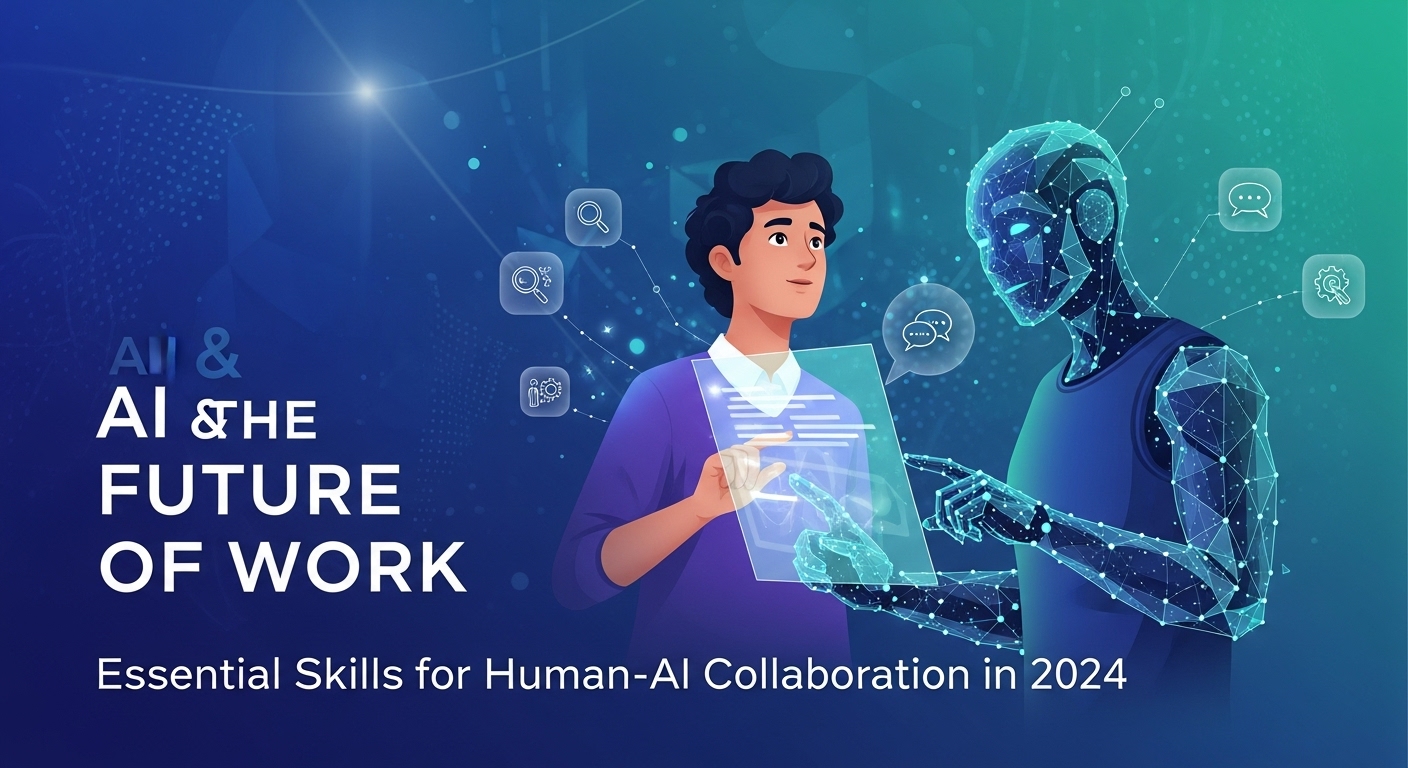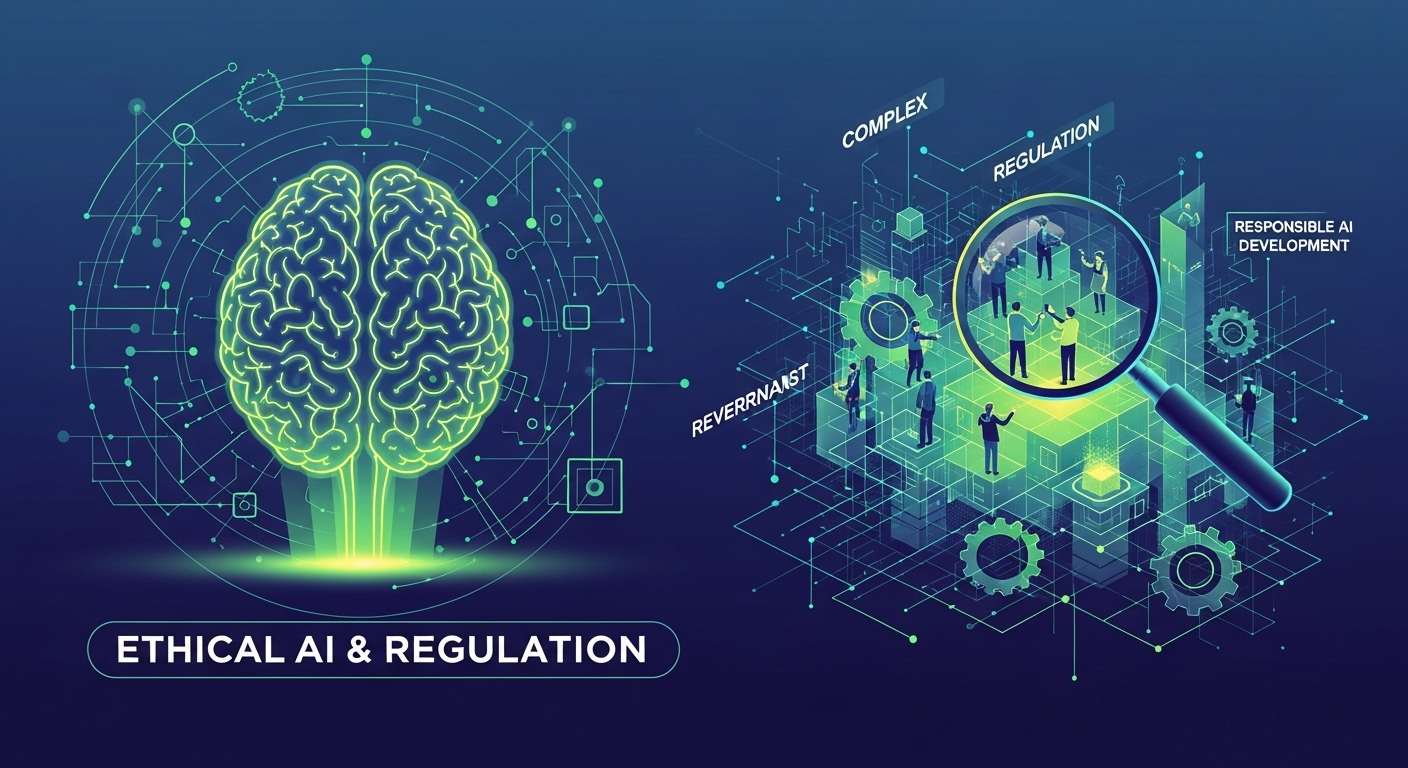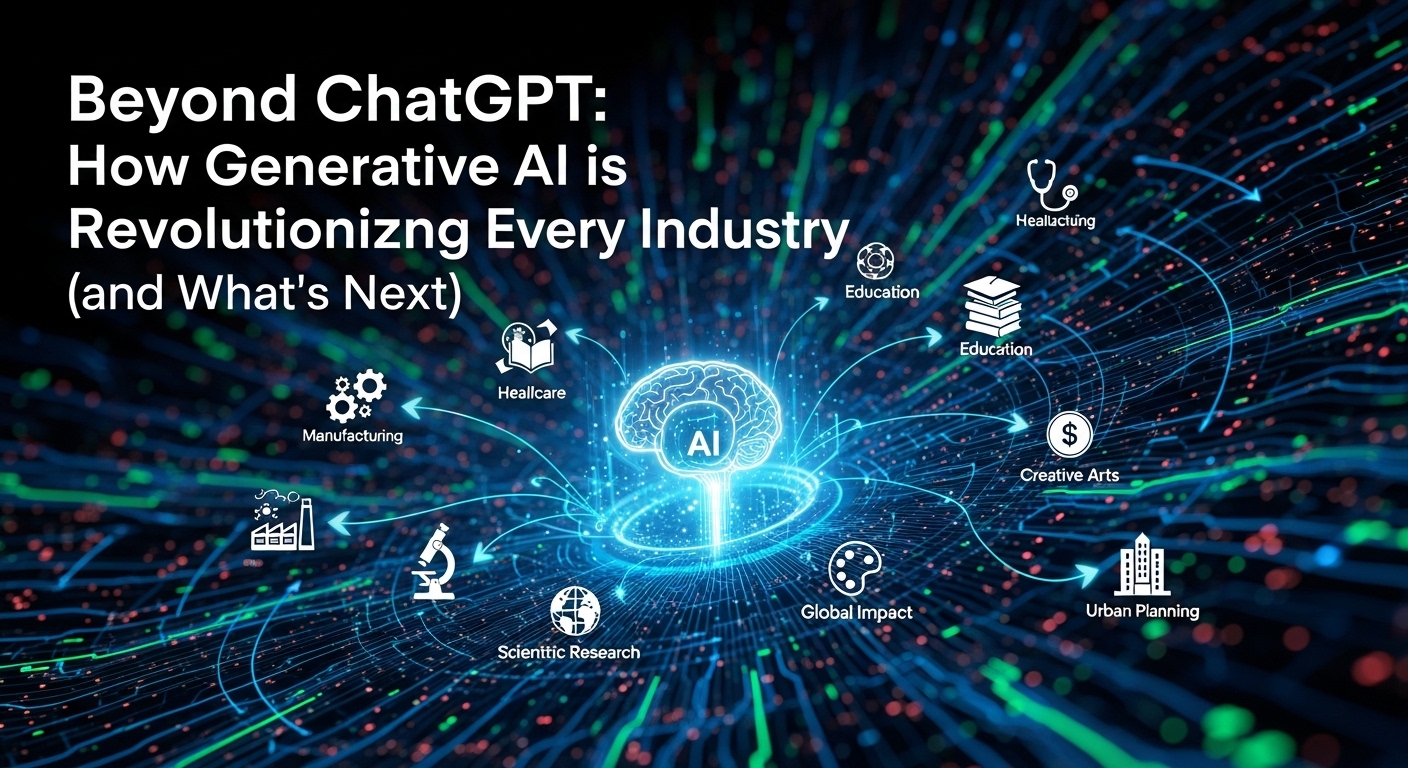The AI Revolution Isn’t Coming – It’s Here
Let’s get one thing straight: the conversation about artificial intelligence in the workplace is no longer a futuristic debate. It’s a present-day reality. From automating routine tasks to analyzing vast datasets in seconds, AI is reshaping industries and redefining job roles at an unprecedented pace. The narrative, however, is often skewed towards a dystopian vision of human obsolescence. But what if we’ve been asking the wrong question? Instead of ‘Will AI take my job?’, the more pertinent question is, ‘How can I work with AI to elevate my job?’
The future of work isn’t a battle between humans and machines. It’s a partnership. This synergy, known as human-AI collaboration, is poised to become the single most important driver of productivity and innovation. In this new paradigm, the most successful professionals won’t be those who resist change, but those who learn to dance with the algorithm. They will be the ones who cultivate a unique set of skills that complement, rather than compete with, artificial intelligence. This article explores the essential skills you need to not just survive, but thrive in this exciting new era of work.
Why Human-AI Collaboration is the New Workplace Paradigm
Think of the most powerful AI as a brilliant, lightning-fast intern. It can process information, identify patterns, and execute commands with superhuman efficiency. It can write code, draft emails, and analyze spreadsheets in the blink of an eye. What it can’t do is understand context, navigate complex social dynamics, feel empathy, or dream up a truly groundbreaking idea from a place of lived experience. That’s where you come in.
The value of human-AI collaboration lies in this complementary relationship. AI handles the ‘science’—the data processing, the repetitive tasks, the computational heavy lifting. Humans provide the ‘art’—the strategic oversight, the creative spark, the ethical judgment, and the emotional intelligence. When you combine the speed and analytical power of AI with the nuance and ingenuity of the human mind, you unlock a level of performance that neither could achieve alone. This is the core of the latest ai & tech trends shaping our professional lives.
The Power of Augmentation, Not Automation
A surgeon using an AI-powered robotic arm can perform procedures with greater precision than ever before. A marketer using an AI tool can analyze customer data to create hyper-personalized campaigns, but still needs the creative vision to craft a compelling brand story. A software developer can use an AI co-pilot to write boilerplate code, freeing them up to focus on complex architectural challenges. In each case, AI isn’t replacing the human; it’s augmenting their capabilities, making them better, faster, and more effective at their jobs. This augmentation is the key to unlocking new levels of value and innovation.
The Core Skills You Need to Thrive in an AI-Driven World
As AI handles more of the technical, repeatable aspects of our jobs, the skills that become most valuable are those that are uniquely human. These are the competencies that machines struggle to replicate. Let’s break down the essential skills for 2024 and beyond.
1. Critical Thinking and Complex Problem-Solving
AI can present you with a mountain of data and even suggest potential solutions. However, it lacks the ability to truly understand the ‘why’. It can’t weigh the ethical implications of a decision, anticipate unforeseen second-order effects, or solve a problem that lacks a clear, data-defined precedent. This is where human critical thinking becomes indispensable. Your ability to ask the right questions, challenge assumptions, interpret data within a broader context, and devise strategies for ambiguous, complex problems is a skill that AI enhances but cannot replace. You become the strategist, guiding the AI tactician.
2. Emotional Intelligence (EQ) and Empathy
In a world increasingly mediated by technology, human connection is more valuable than ever. Emotional intelligence—the ability to understand, use, and manage your own emotions and recognize them in others—is at the forefront. Leadership, teamwork, negotiation, and client relations all hinge on EQ. An AI can’t genuinely empathize with a frustrated customer or inspire a demotivated team. As AI automates technical tasks, your ability to collaborate, communicate effectively, and build strong interpersonal relationships will become your professional superpower.
3. Creativity and Innovation
Generative AI can create stunning images, write poetry, and compose music. But is it truly creative? This is a topic of much debate, but for now, AI’s creativity is largely derivative, based on patterns in the vast amounts of data it was trained on. True innovation—the kind that disrupts industries—comes from human curiosity, imagination, and the ability to connect disparate concepts in novel ways. The future belongs to those who can use AI as a creative muse, a tool to brainstorm, prototype, and iterate, but who ultimately provide the unique vision and spark of ingenuity.
4. Digital Literacy and AI Fluency
You don’t need to become a machine learning engineer, but you do need to develop a fundamental understanding of how AI works. This is what we call AI fluency. It involves knowing the capabilities and, just as importantly, the limitations of different AI tools. A key part of this is mastering the art of ‘prompt engineering’—learning how to communicate your requests to an AI in a way that yields the most accurate, relevant, and useful results. Understanding concepts like bias in AI models and data privacy is also crucial for responsible and effective use. This is no longer a niche skill for techies; it’s a baseline competency for the modern professional.
5. Adaptability and Lifelong Learning
If there’s one certainty about the current wave of ai & tech trends, it’s that the pace of change will only accelerate. The tools and best practices of today could be outdated in 18 months. Therefore, the most critical skill of all is a mindset of continuous, lifelong learning. You must cultivate a curiosity that drives you to explore new technologies, an agility that allows you to pivot your skill set, and a resilience that helps you embrace change rather than fear it. Your commitment to learning and adapting will be the ultimate determinant of your long-term career success.
Practical Steps to Cultivate Your Human-AI Collaboration Skills
Knowing which skills are important is the first step. Actively developing them is the next. Here are some practical ways to start building your future-proof skill set today.
- Embrace AI Tools in Your Daily Workflow: Don’t wait to be told. Start experimenting. Use tools like ChatGPT for brainstorming and drafting, leverage AI features in software you already use (like Microsoft 365 Copilot or Google’s AI), and explore industry-specific platforms. The more you use them, the more you’ll understand their potential.
- Focus on Cross-Disciplinary Projects: Step outside your functional silo. Collaborate with colleagues from different departments. This will expose you to diverse perspectives and force you to solve complex problems that require more than just technical expertise.
- Invest in ‘Soft Skill’ Development: Actively seek out opportunities to improve your communication, leadership, and teamwork skills. Join a public speaking club, take a course on negotiation, or volunteer to lead a project team. These skills have immense ROI in an AI-driven world.
- Stay Informed: Dedicate a small amount of time each week to reading about the latest ai & tech trends. Follow thought leaders, subscribe to newsletters, and listen to podcasts in the space. Staying current is key to staying relevant.
Conclusion: Your Future is Human-Centric and AI-Powered
The rise of AI is not the end of human work; it’s the beginning of a more meaningful, creative, and strategic era of work. The mundane, repetitive tasks will increasingly fall to our digital counterparts, freeing us up to focus on the things that make us uniquely human: our ability to think critically, to connect emotionally, to create originally, and to adapt endlessly. By focusing on developing these essential skills, you’re not just preparing for the future of work—you’re actively shaping it. The goal is not to out-compete the machine, but to become an irreplaceable partner to it. Start today, be curious, and embrace the incredible potential of human-AI collaboration.


